An argument from nonbelief is a philosophical argument that asserts an inconsistency between the existence of God and a world in which people fail to recognize him. It is similar to the classic argument from evil in affirming an inconsistency between the world that exists and the world that would exist if God had certain desires combined with the power to see them through.

Sherry Turkle is the Abby Rockefeller Mauzé Professor of the Social Studies of Science and Technology at the Massachusetts Institute of Technology. She obtained an AB in Social Studies and later a PhD in Sociology and Personality Psychology at Harvard University. She now focuses her research on psychoanalysis and human-technology interaction. She has written several books focusing on the psychology of human relationships with technology, especially in the realm of how people relate to computational objects.
The Human Potential Movement (HPM) arose out of the counterculture of the 1960s and formed around the concept of an extraordinary potential that its advocates believed to lie largely untapped in all people. The movement takes as its premise the belief that through the development of their "human potential", people can experience a life of happiness, creativity, and fulfillment, and that such people will direct their actions within society toward assisting others to release their potential. Adherents believe that the collective effect of individuals cultivating their own potential will be positive change in society at large.

Virtue ethics is an approach to ethics that treats the concept of moral virtue as central. Virtue ethics is usually contrasted with two other major approaches in normative ethics, consequentialism and deontology, which make the goodness of outcomes of an action (consequentialism) and the concept of moral duty (deontology) central. While virtue ethics does not necessarily deny the importance of goodness of states of affairs or moral duties to ethics, it emphasizes moral virtue, and sometimes other concepts, like eudaimonia, to an extent that other normative ethical dispositions do not.
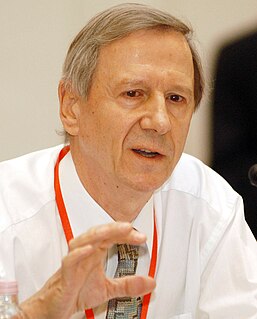
Anthony Giddens, Baron Giddens is an English sociologist who is known for his theory of structuration and his holistic view of modern societies. He is considered to be one of the most prominent modern sociologists and is the author of at least 34 books, published in at least 29 languages, issuing on average more than one book every year. In 2007, Giddens was listed as the fifth most-referenced author of books in the humanities. He has academic appointments in approximately twenty different universities throughout the world and has received numerous honorary degrees.

Peter Ludwig Berger was an Austrian-born American sociologist and Protestant theologian. Berger became known for his work in the sociology of knowledge, the sociology of religion, study of modernization, and theoretical contributions to sociological theory.
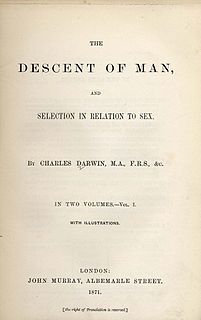
The Descent of Man, and Selection in Relation to Sex is a book by English naturalist Charles Darwin, first published in 1871, which applies evolutionary theory to human evolution, and details his theory of sexual selection, a form of biological adaptation distinct from, yet interconnected with, natural selection. The book discusses many related issues, including evolutionary psychology, evolutionary ethics, evolutionary musicology, differences between human races, differences between sexes, the dominant role of women in mate choice, and the relevance of the evolutionary theory to society.
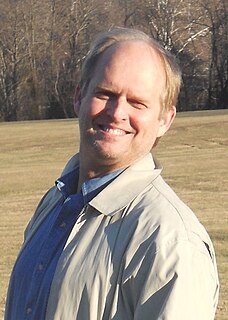
Robin Dale Hanson is an associate professor of economics at George Mason University and a research associate at the Future of Humanity Institute of Oxford University. He is known for his work on idea futures and markets, and he was involved in the creation of the Foresight Institute's Foresight Exchange and DARPA's FutureMAP project. He invented market scoring rules like LMSR used by prediction markets such as Consensus Point, and has conducted research on signalling.
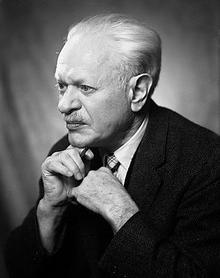
Kenneth Duva Burke was an American literary theorist, as well as poet, essayist, and novelist, who wrote on 20th-century philosophy, aesthetics, criticism, and rhetorical theory. As a literary theorist, Burke was best known for his analyses based on the nature of knowledge. Further, he was one of the first individuals to stray from more traditional rhetoric and view literature as "symbolic action."
Hidden personality is the part of the personality that is determined by unconscious processes.

A Treatise of Human Nature: Being an Attempt to Introduce the Experimental Method of Reasoning into Moral Subjects (1739–40) is a book by Scottish philosopher David Hume, considered by many to be Hume's most important work and one of the most influential works in the history of philosophy. The Treatise is a classic statement of philosophical empiricism, scepticism, and naturalism. In the introduction Hume presents the idea of placing all science and philosophy on a novel foundation: namely, an empirical investigation into human nature. Impressed by Isaac Newton's achievements in the physical sciences, Hume sought to introduce the same experimental method of reasoning into the study of human psychology, with the aim of discovering the "extent and force of human understanding". Against the philosophical rationalists, Hume argues that the passions, rather than reason, cause human behaviour. He introduces the famous problem of induction, arguing that inductive reasoning and our beliefs regarding cause and effect cannot be justified by reason; instead, our faith in induction and causation is caused by mental habit and custom. Hume defends a sentimentalist account of morality, arguing that ethics is based on sentiment and the passions rather than reason, and famously declaring that "reason is, and ought only to be the slave to the passions". Hume also offers a sceptical theory of personal identity and a compatibilist account of free will.

The Wrong Way Home: Uncovering the Patterns of Cult Behavior in American Society, is a book on cult culture within the United States, written by Arthur J. Deikman, M.D. The book was originally published in hardcover format in December 1990 by Beacon Press, and reprinted in paperback form September 1994. Dr. Deikman was a professor of psychiatry at University of California, San Francisco, and a member of the editorial board of the Journal of Humanistic Psychology.

Banal nationalism refers to the everyday representations of the nation which build a shared sense of national belonging amongst humans, a sense of tribalism through national identity. The term is derived from English academic, Michael Billig's 1995 book of the same name and is intended to be understood critically. Billig's book has been described as 'the fourth most cited work on nationalism ever published'. Billig devised the concept of 'banal nationalism' to highlight the routine and often unnoticed ways that established nation-states are reproduced from day to day. The concept has been highly influential, particularly within the discipline of political geography, with continued academic interest since the book's publication in 1995. Today the term is used primarily in academic discussion of identity formation, geopolitics, and the nature of nationalism in contemporary political culture.
A self-help book is one that is written with the intention to instruct its readers on solving personal problems. The books take their name from Self-Help, an 1859 best-seller by Samuel Smiles, but are also known and classified under "self-improvement", a term that is a modernized version of self-help. Self-help books moved from a niche position to being a postmodern cultural phenomenon in the late twentieth century.
Geoffrey Beattie is a British psychologist, author and broadcaster. He is Professor of Psychology at Edge Hill University and has been visiting professor at the Bren School of Environmental Science and Management, University of California Santa Barbara. He graduated with a First Class Honours degree from the University of Birmingham and a PhD from Trinity College, Cambridge. He is a Fellow of the British Psychological Society, a Fellow of the Royal Society of Medicine and a Fellow of the Royal Society of Arts.
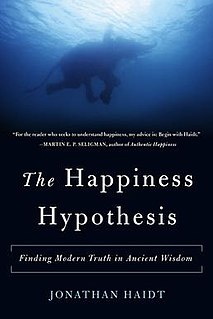
The Happiness Hypothesis: Finding Modern Truth in Ancient Wisdom is a 2006 psychology book written by Jonathan Haidt for a general audience. In it, Haidt poses several "Great Ideas" on happiness espoused by thinkers of the past—Plato, Buddha, Jesus, and others—and examines them in the light of contemporary psychological research, extracting from them any lessons that still apply to our modern lives. Central to the book are the concepts of virtue, happiness, fulfillment, and meaning.
Skeptical theism is the view that people should remain skeptical of their ability to discern whether their perceptions about evil can be considered good evidence against the existence of the orthodox Christian God. The central thesis of skeptical theism is that it would not be surprising for an infinitely intelligent and knowledgeable being's reasons for permitting evils to be beyond human comprehension. That is, what may seem like pointless evils may be necessary for a greater good or to prevent equal or even greater evils. This central thesis may be argued from a theistic perspective, but is also argued to defend positions of agnosticism.
Ethogenics is an interdisciplinary social scientific approach that attempts to understand the systems of belief or means through which individuals attach significance to their actions and form their identities by linking these to the larger structure of rules (norms) and cultural resources in society. For Rom Harré, the founder of ethogenics, it represents a radical innovation in traditional psychology, even a completely "new psychology" that should take its place..
Rose is the 2010 book by Inga Muscio which looks into the passive and physical violence in our daily lives and describes how we might find love within this violence. It is her third book, following Cunt: A Declaration of Independence (1998) and Autobiography of a Blue-Eyed Devil: My Life and Times in a Racist, Imperialist Society (2005). Rose is divided into three main sections: an Introduction, Part I—Violence, and Part II—Love.

Religion for Atheists: A non-believer's guide to the uses of religion is a book by Alain de Botton published in 2012. It argues that while supernatural claims made by religion are false, some aspects of religion are still useful and can be applied in secular life and society. Religion for Atheists was published in the UK in hardback edition by Hamish Hamilton, and in the US by Pantheon. Religion for Atheists was a New York Times non-fiction bestseller, and has been widely reviewed, with mixed results.












